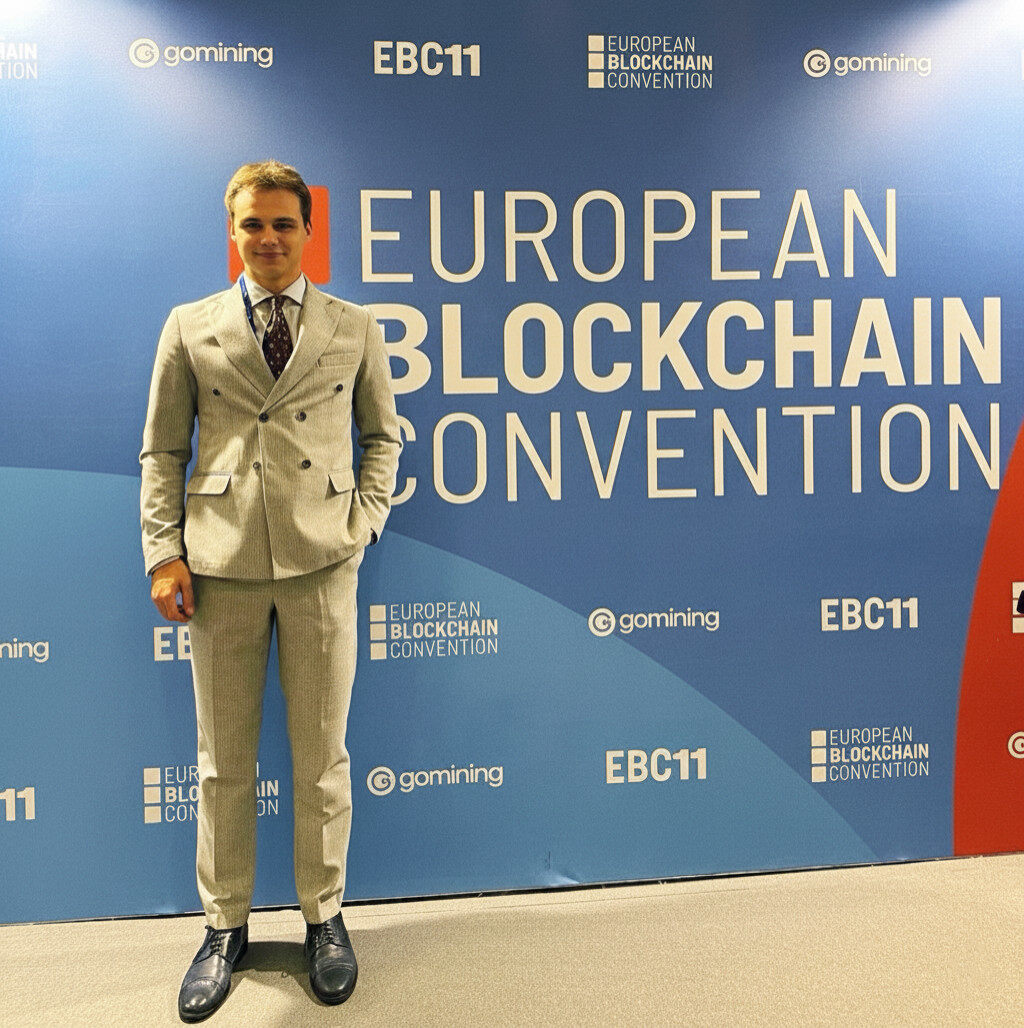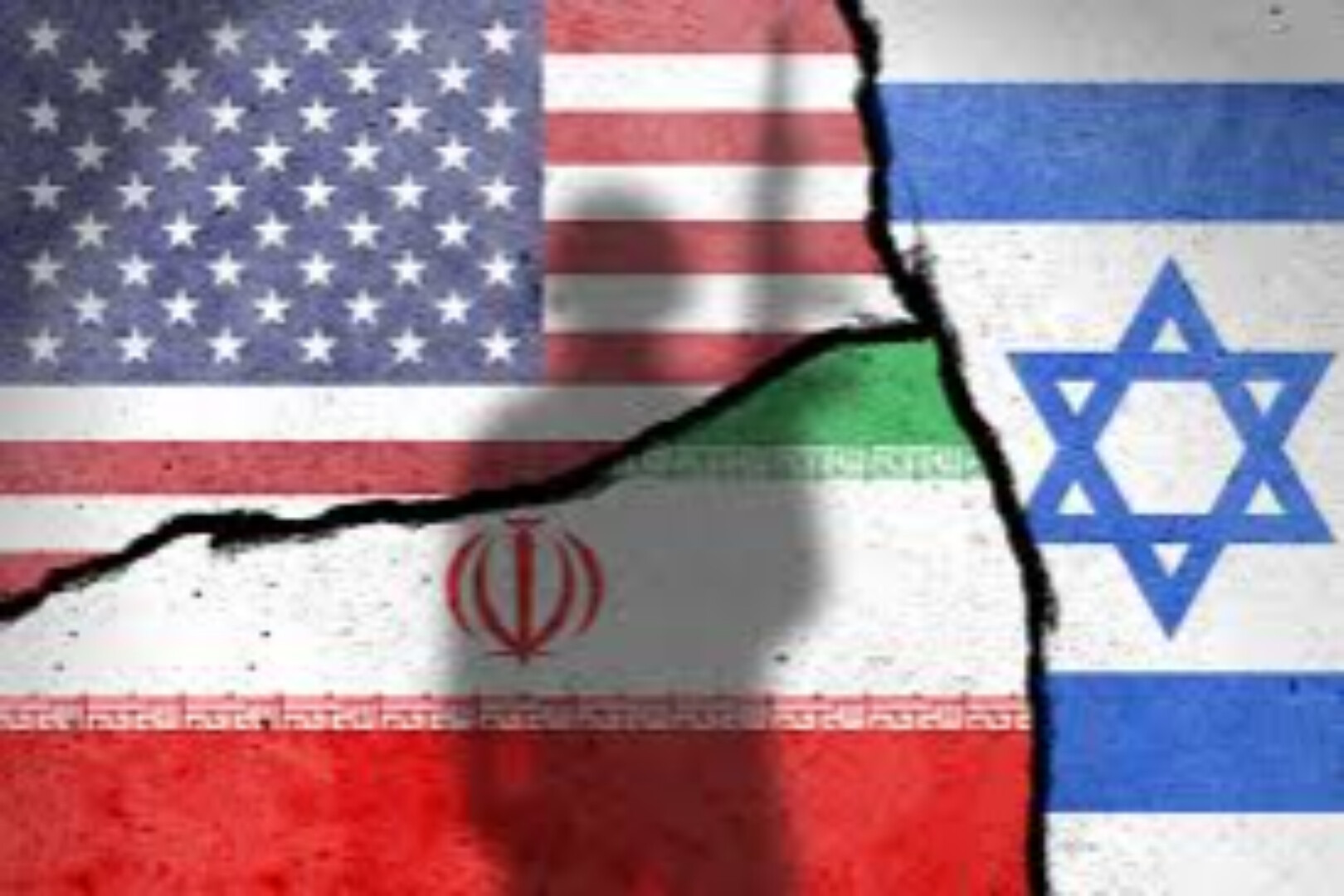Order and Ambition in the New Crypto World: Observations from the EBC 2025 European Blockchain Conference
- 核心观点:欧洲加密市场转向理性合规发展。
- 关键要素:
- MiCA监管框架实现欧盟牌照通用。
- 机构资金因明确规则加速入场。
- 行业标准促进全球市场互联。
- 市场影响:推动行业从野蛮生长转向制度化建设。
- 时效性标注:长期影响

In October, the sunlight in Barcelona still carries the soft glow of the Mediterranean.
Two years ago, in the same city, at the same conference, regulation was a call to action. That was the 2023 European Blockchain Convention (EBC)—a moment filled with unease and self-doubt. The shadow of FTX's bankruptcy had not yet faded, and the aftershocks of Luna, Celsius, and other collapses still lingered. On the stage in Barcelona, bankers and crypto fundamentalists sat together for the first time, cautious yet reaching a consensus on the same point: "We need rules."
That year, regulation was a "topic"; two years later, it became a "prerequisite".
When I stepped back into the EBC venue in 2025, the scene was almost unfamiliar. The number of attendees had swelled from 2,500 to 6,000; the attendees had also undergone subtle changes—not just entrepreneurs in hoodies, but more asset managers and institutional representatives in suits, with rationality and professionalism permeating every corner of the venue.
This year's conference was more like an "institutional revolution." It was neither the collapse of the old order nor a celebration of the new world, but a quiet shift in consensus—from ideals to governance, from slogans to structures, from passion to rationality.
In the past 48 hours of interviews, I have met different faces that represent the European spirit:
They interpreted the same theme in their respective languages.
In a world that worships speed, Europe has chosen rational development under new regulations.
I. Crypto Lawyers — Fish or Bear's Paw?
Description: Photographed by Nikita Prokopenko at the European Blockchain 2025 conference.
In the live chat area of EBC 2025, I met my first pre-booked interviewee: Nikita Prokopenko, a cryptocurrency lawyer from Italy. He was impeccably dressed in a light gray suit, his tone gentle, yet sharp and incisive, much like the excellent lawyers in Netflix dramas. His opening remarks were concise and insightful:
"Regulation is not handcuffs, but a new map."
In that instant, I knew that this conversation would not be boring.
On this map, each jurisdiction has its own costs. “In the cryptocurrency space, you face a dilemma.” He gestured with his hand, “On the one hand, places like Dubai have extremely low taxes—zero property tax and a five percent VAT—but the license application process is hellish, time-consuming, and costly; on the other hand, you can choose a jurisdiction with a simpler process, where you can get a license in three months, but the taxes will be higher.”
This is a choice between two equally desirable but mutually exclusive options.
When I inquired about the current state of European license applications, he provided the following figures: "Obtaining a license in Europe typically requires 300 hours of work. Because the process involves collaboration between multiple legal teams and different companies, it usually takes two to three months to complete. The specific cost depends on the complexity of the project—how many types of business activities do you need? How many countries do you want to cover? What is your existing client base?"
When discussing the differences between European countries, Nikita seemed quite experienced: "For example, applying for a license in the Czech Republic is much straightforward than in the Netherlands. The Dutch regulatory system is more complex, so the process is more difficult."
Is Malta still a crypto haven?
Our conversation turned to Malta—the former “crypto haven.” Malta has issued five different cryptocurrency licenses, and several well-known institutions have obtained licenses there. The process is indeed simple and straightforward.
But the price of simplicity is limitation. "The problem is, almost no clients are willing to actually move their business there. It's just a small island not far from Italy; in my opinion, there's not much to do there, and nobody wants to hold meetings there. "
He paused, as if summarizing:
"The simpler the regulation, the more isolated the ecosystem becomes."
If we divide the crypto world into "policy havens" and "business havens," Malta clearly belongs to the former.
When I asked him about the easiest places globally to obtain a license, his answer was surprising: "Frankly, one of the easiest jurisdictions is Canada. Their MSB (Money Services Business) license gives you the right to work in cryptocurrency." But he immediately added, "However, the taxes there aren't the best."
The Realism and True Value of Mica
When the topic turned to the European MiCA (crypto asset market regulations ) regulatory framework, Nikita's tone became noticeably serious. "Frankly, Europe is currently one of the most challenging jurisdictions."
He wrote down several requirements on the interview form: three directors, one of whom must be an EU resident; there must be teams for cybersecurity, operations, marketing, and complaints handling; "These must be real people, and you must have contracts with them—it could be an employment agreement or a B2B agreement, but you can't just say 'we don't have the people yet.'"
It sounds complicated, but clients don't complain. "Because once you get a license in Spain, it's valid throughout the 27 EU countries." He shrugged. "That's the advantage of the rules—once you qualify, there's no need for further explanation."
Predicting the market, or gray-area prediction?
Regarding the currently popular prediction markets, he admitted it's a gray area: "Prediction markets like Polymarket aren't directly regulated in cryptocurrency regulation. It looks like gambling, which is tricky. MiCA has never directly mentioned it."
His assessment was: "It appears that as long as the platform doesn't hold assets or exchange cryptocurrencies, it can operate without a license. If it's simply about allowing people to place bets on a Web3 decentralized platform, then a license isn't necessary."
At the end of our conversation, Nikita summarized his views on the current regulatory environment: "The situation is very uncertain right now, and we need to wait for further comments from market regulators. But one thing is clear—the rules are becoming clearer, which is a good thing for the industry as a whole."
II. Exchange Executives — New Crypto Continent and its Captain

Source: Seminar on "The Competitive Advantages of MiCA Licensing in Customer Acquisition"

Description: Erald Ghoos (right) and the author of this article, Carine (left), pose for a photo at the event.
As noon approached, the number of people in the venue increased significantly. The sounds of voices, footsteps, and the low hum of the coffee machines mingled together, like the background noise that constitutes the reality of the crypto industry.
At the round table in the VIP area, I was waiting to interview Erald Ghoos—the invited speaker of this conference, a veteran with twenty years of experience in the financial industry, and currently the CEO of a leading European exchange.
What he wants to talk about is the logic of localization and user trust in the European market.
Not far away, at the booth of a newly established exchange, several Asian employees were busy distributing souvenirs to the crowd. Oversized yellow shopping bags swayed through the crowd, showcasing the exchange's extreme and daring trading features.
"No KYC registration required, 400x leverage, quick entry." Noisy and eye-catching, like a visual metaphor for risk.
Why is the European market the age of exploration for the new crypto continent?
"Speed is the super language of Asia, while trust is the underlying logic of the European market."
Erald himself has a calm and composed demeanor, like an experienced gentleman, unhurried and calm, and his words reveal a long-term understanding of the market.
“Before MiCA, the European market was more like an uncharted sea – adventurers navigated by intuition, sought wealth through experience, and also risked sinking,” Erald said.
“After MiCA was introduced, shipping routes were drawn on maps. We began to know which waters were safe and which storms were predictable.”
He called the change "that made trust priced."
"Regulation makes risks quantifiable and behaviors predictable, thus allowing institutional funds to truly enter the market."
"Banks, insurance companies, and asset management companies are concerned with whether the rules are clear and whether the risks are transparent. After MiCA, uncertainty has decreased, and capital will naturally flow in."
In his view, Europe is no longer a testing ground, but a predictable and investable new crypto continent .
With clear routes in place, trust becomes the currency.
On European localization and user mindshare: How to build trust?
Erald swipes the phone screen to showcase its app's multilingual interface and local payment options, including iDEAL in the Netherlands, Bancontact in Belgium, BLIK in Poland, and SEPA covering all of Europe.
“We partner with these local payment institutions so that users can complete transactions within a familiar system,” he said calmly. “ When users can buy Bitcoin the way they buy coffee every day, that’s when trust is established .”
He mentioned that the company has publicly disclosed its Proof of Reserves for many years and has obtained multiple financial licenses within the EU. It plans to expand its structured and leveraged products to meet the needs of institutional investors.
Trust is a concept that moves from abstract ideas to concrete actions; the less friction there is in familiar paths, the more stable the trust becomes.
In his tone, product design and behavioral psychology were condensed into a single business maxim:
In the financial field, people trust the systems they truly understand and comprehend the most.
European Market Summary: Competition with Slow Variables
When discussing the pace of the European market, Erald deliberately slowed down his speech.
“In the crypto industry, many people think that a moat is traffic or transaction volume. But in Europe, the moat is trust,” Erald said.
He calls this structural advantage "competition of slow variables":
Clear regulations, a habit of compliance, and the accumulation of trust —these may seem slow, but they are the most difficult to replicate.
"You can get listed on an exchange in three months, but it takes three years to build brand trust in a country."
MiCA brings not only rules, but also a continuously reusable trust mechanism.
Within this framework, competitors are no longer competing on speed, but on sound execution and long-term credibility.
I glanced to the other side of the venue, where a yellow bag from a certain organization was still swaying in the air.
The bustling traffic and steady construction coexist in the same space.
It seems that the differences between different organizations lie not only in their size and positioning, but also in their strategies and values.
III. Standard Setters – Does Innovation Require Starting Over?

Description: Rowan Varrall represented the DTI Foundation at the roundtable forum.

Source: Roundtable Forum on "The Evolution of ISO Standards in the Digital Asset Market"
"Success is not about creating new rules, but about enabling everyone to innovate within the same language system."
In the afternoon, in a side hall of the main venue, I met the third interviewee—Rowan Varrall, Head of Regulatory Affairs at the Digital Token Identifier Foundation (DTI Foundation).
He had just come from a roundtable forum on "Digital Asset Regulation and Standardization," wearing a dark gray suit. His speech was steady and logically clear— the confident tone that conveyed his belief in the system made it immediately clear that he belonged to the type of person who persuaded the world with "logic."
(*The DTI Foundation is the registration body for the ISO 24165 standard, "Digital Token Identifier (DTI)," which is currently recognized by the European Securities and Markets Authority (ESMA).)
Advice for project owners before they enter the site
"The most common mistake is that project teams try to compete where they don't need to compete."
Rowan said, "True success lies in innovation based on common data standards—that way, products and services can flow freely within the ecosystem."
In his narrative, innovation does not mean disruption, but rather compatibility. Those seemingly cold, universal data elements and message formats are actually the fertile ground for innovation— a language that allows different systems and markets to communicate.
“If everyone uses the same vocabulary and the same data structure, then transactions, products, and regulatory information can be transferred seamlessly between different markets.”
He paused for a moment, then said calmly, “True innovation is not about creating a new shape, but about whether you can make that shape communicate with the system.”
This sounds like the ultimate expression of European rationality: rebuilding on consensus, rather than tearing it down and starting over.
Will European regulations stifle innovation?
When I asked whether European regulation “restricts innovation,” he replied almost without hesitation: “Without regulation, you can’t do anything.”
He explained it very plainly—
“Every organization asks itself before making a decision: Is this legal? Can I operate without being knocked on by regulators?”
Therefore, the significance of regulation is no longer constraint, but a guarantee of certainty.
"If there is a clear framework that can eliminate ambiguity, it will actually attract investment."
According to him, the European regulatory approach stands in stark contrast to what we have seen in the United States until recently:
"Europe has set clear boundaries in advance and charted feasible paths for technological development, while the United States often only reacts after someone has crossed those boundaries. However, we are seeing a significant shift in the United States in this regard."
What is the order of the future?
When discussing global projects entering the European market, his advice was very pragmatic:
“No matter which jurisdiction you’re in, you can use industry standards to build new products—that’s a universal language.”
In his view, every transaction and every product is actually composed of components . If everyone uses the same terminology to describe these components, they can naturally connect across different regulatory systems and market boundaries.
"When everyone uses the same standard to describe transactions, assets, and data, the gap between regulators, institutions, and markets will narrow."
He added softly, "At that time, the rules were no longer just European rules, but a global language."
Outside the venue, people were still enthusiastically discussing "RWA", "Tokenization", and "AI Trading".
From Rowan's perspective, the real future may lie in the standard documents—those calm words that define field lengths, data types, and validation logic.
IV. Investors – The European Pace of the Crypto Market

Source: Photo taken at the European Blockchain 2025 conference.
On the last afternoon of the exhibition, the room was still bustling with activity.
I arrived at the Ventures booth, owned by a well-known exchange—there stood a huge blue balloon, shaped like a leaping whale, with their institutional logo printed on it, shimmering with a metallic sheen under the lights, attracting countless eyes.
Several startup team representatives were queuing up to give their presentations. Just then, I met Timul , a member of their European team—a passionate young European man who was talking to the project team. He spoke quickly, had a genuine smile, and his conversation carried a unique "crypto vibe."
I asked him, "What do you care about most when you're looking at European projects?"
He thought for a moment, then answered directly without mentioning valuation, token structure, or funding amount: "The community."
"Community?"
“Yes,” he nodded. “Real growth comes from users, not investors. You can have one or two big investors, but that won’t bring real adoption. Community users are the ones who will participate, spread the word, and stay.”
I asked him, "So, one of your core criteria for judging a project is community activity?"
He nodded: "Yes, but not just the numbers. A lot of people talk about narratives, but if a narrative doesn't have real users who believe in it and participate in it, it's just a performance."
As the head of operations for localization in Spain, he spoke with a local confidence. "In Europe, KOLs have more of their own judgment and are less likely to create content for money; in Asia, collaborations are more efficient and commercialized. Every market has traffic, but trust is the scarce resource."
We discussed market volatility and user education, and he smiled, saying, "The crypto market has its own rhythm." He paused, then his tone became serious: "I hope project teams understand that the market won't stay hot forever, but real users will stay."
Perhaps this is another force in the European market—from robust institutions to idealistic young people, from regulatory certainty to community spontaneity.
“The market here rewards patience, just in a different way, ” Timul said.
"Don't rush, but win in the time."
Conclusion: The flight path is set, and the wind direction can be predicted.
As the Barcelona sun set, the crowds at EBC 2025 slowly dispersed, and the hustle and bustle of the exhibition halls gradually subsided, but the sense of order in this new crypto continent persisted. Two years ago, rules were merely a call to action; two years later, rules have become the passport to success. The European market teaches us a reality—innovation doesn't have to rebel against order, and order can also nurture innovation.
Here, trust is quantifiable, risks are predictable, and innovation grows on consensus and standards. Whether they are lawyers, exchange executives, or standard setters, they are all interpreting the same concept in different ways: the new continent of the crypto world is not a free port of unbridled growth, but a rationally sculpted and navigable sea.
Perhaps this is the romance of European encryption: not unbridled freedom, but a dance of reason and order, an ambition that extends freely within the rules. The course is set, the wind direction is predictable, and the exploration of the future has only just begun.




